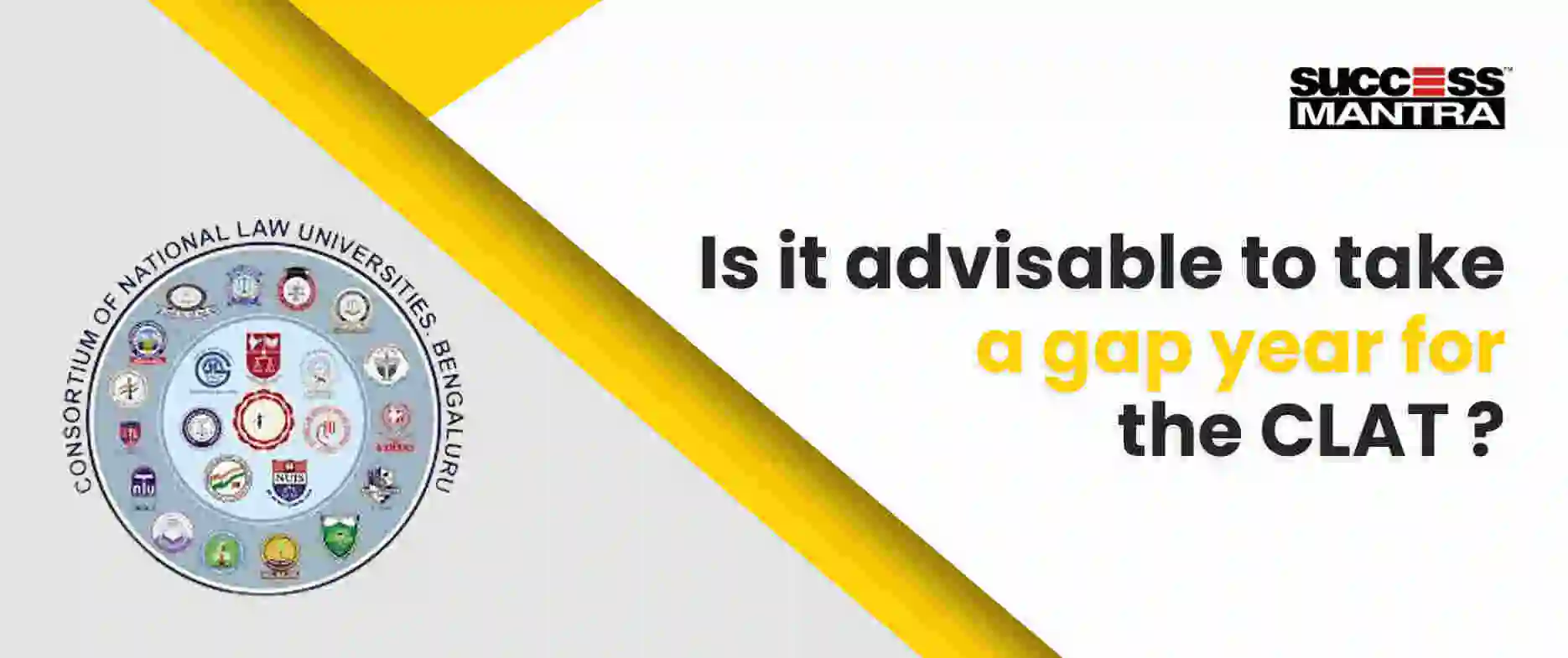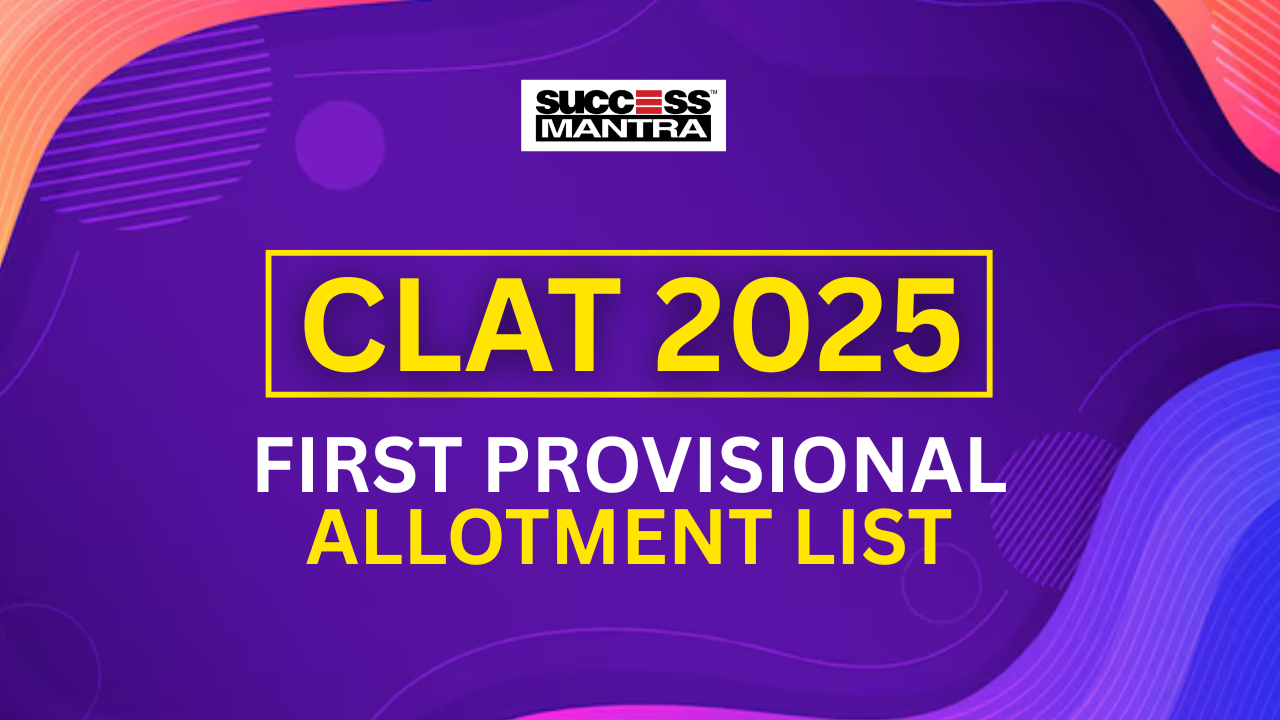
Should I take a gap year for CLAT ?
Gap Year for CLAT 2025: Pro's & Con's
Deciding to take a gap year to prepare for the Common Law Admission Test (CLAT) is a significant decision that can impact your academic and professional trajectory. Here, we'll delve into the benefits and drawbacks of taking a gap year, as well as practical considerations and advice for making this decision.
Benefits of Taking a Gap Year for CLAT
- Focused Preparation: One of the primary advantages of taking a gap year is the ability to focus entirely on CLAT preparation. Without the distractions of school or college coursework, you can dedicate your time to studying, practicing, and improving your understanding of the exam material.
- Improvement in Scores: If you have already attempted CLAT but did not achieve the desired score, a gap year provides an opportunity to analyze your weaknesses, work on them, and potentially improve your scores significantly.
- Clarity and Maturity: A gap year can give you time to gain clarity about your career goals and mature your understanding of the legal field. This period can be used for internships, volunteering, or gaining work experience in legal environments, which can also strengthen your application.
- Health and Well-being: The rigorous preparation for competitive exams can take a toll on mental and physical health. A gap year can provide the necessary respite to recover, build resilience, and approach the exam with a healthier mindset.
Drawbacks of Taking a Gap Year for CLAT
- Loss of Academic Year: Taking a gap year means you will start your legal education one year later than your peers. This delay might affect your long-term academic and career timeline.
- Pressure and Stress: The decision to take a gap year can come with increased pressure to perform well in the subsequent attempt. This added pressure can lead to stress and anxiety, which may hinder your preparation.
- Financial Considerations: A gap year can have financial implications, especially if it involves coaching classes, study materials, and other resources. It’s essential to consider the financial aspect and plan accordingly.
- Mismanagement of Time: Without a structured environment, there is a risk of mismanaging your time. Procrastination or lack of discipline can lead to a less productive year, defeating the purpose of taking a gap year.
Practical Considerations for Taking a Gap Year
- Self-Assessment: Conduct a thorough self-assessment to evaluate your current preparation level, strengths, and weaknesses. Be honest about whether a gap year is necessary to achieve your goals.
- Create a Study Plan: Outline a comprehensive study plan with specific goals, timelines, and milestones. Break down the syllabus into manageable sections and allocate time for revision and practice tests.
- Join Coaching or Study Groups: Consider joining a coaching institute or study group to keep you motivated and on track. Guidance from experienced instructors and peer support can enhance your preparation.
- Balance Study and Relaxation: Maintain a balance between study and relaxation to avoid burnout. Incorporate regular breaks, physical exercise, and hobbies to keep your mind fresh and focused.
- Stay Updated: Keep yourself updated with any changes in the CLAT exam pattern, syllabus, or important dates. Regularly visit the official CLAT website and other reliable sources for the latest information.
Maximum Number of Gap Years for CLAT
There is no official limit on the number of gap years one can take before appearing for CLAT. However, it is advisable to consider the long-term impact on your career. Multiple gap years might raise questions during interviews or admissions, and it’s essential to have a clear rationale and explanation for the gap period. We have shown you the pro’s and con’s
Conclusion
Taking a gap year for CLAT can be a strategic move if approached with careful planning and discipline. It offers the opportunity for focused preparation, score improvement, and personal growth. However, it also comes with challenges such as loss of academic year, increased pressure, and financial considerations. Ultimately, the decision should be based on your individual circumstances, preparation level, and long-term career goals. Assess your situation thoroughly, create a structured plan, and make an informed choice that aligns with your aspirations.













Avoife
https://stolichnyi.kiev.ua/
Waynelon
<b><a href=https://horecamiami.com/>Comprehensive Hotel and Motel Renovation Services for Quality Upgrades </a></b> Fast Food Remodel Company Our junk food remodel firm offers specialist restoration services to upgrade your store. We concentrate on visual appeals and performance to enhance client complete satisfaction.
mplmcrqnoh
Latest News on Education & LAW Exams Blogs | Success Mantra mplmcrqnoh http://www.gp3ex0o7v664q35909ntg7c6y57musy4s.org/ [url=http://www.gp3ex0o7v664q35909ntg7c6y57musy4s.org/]umplmcrqnoh[/url] <a href="http://www.gp3ex0o7v664q35909ntg7c6y57musy4s.org/">amplmcrqnoh</a>
oxghexlp
Latest News on Education & LAW Exams Blogs | Success Mantra [url=http://www.gd9d4805zw3ui5a97dblh99332xue6d6s.org/]uoxghexlp[/url] oxghexlp http://www.gd9d4805zw3ui5a97dblh99332xue6d6s.org/ <a href="http://www.gd9d4805zw3ui5a97dblh99332xue6d6s.org/">aoxghexlp</a>
nnsgopprr
Latest News on Education & LAW Exams Blogs | Success Mantra <a href="http://www.g4w1oj818h481bhze4y86hd8b36p7zq3s.org/">annsgopprr</a> nnsgopprr http://www.g4w1oj818h481bhze4y86hd8b36p7zq3s.org/ [url=http://www.g4w1oj818h481bhze4y86hd8b36p7zq3s.org/]unnsgopprr[/url]